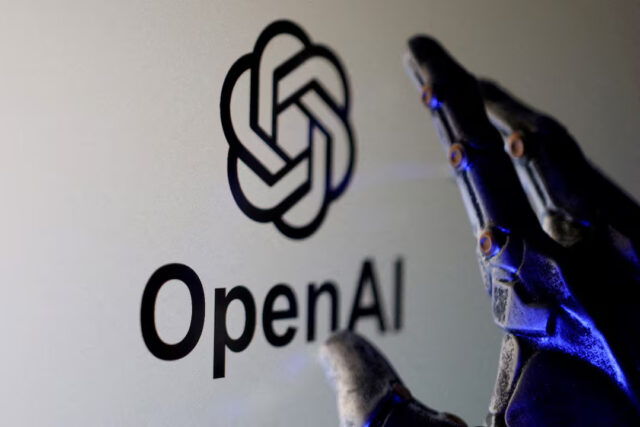
In a bid to boost computing power amid rising demand, OpenAI has joined hands with Broadcom to develop its own AI chips — marking its first move into in-house processor production.
Shares of Broadcom rose more than 10%.
The companies said on Monday that OpenAI would design the chips, which Broadcom will develop and deploy starting in the second half of 2026. They will roll out 10 gigawatts worth of custom chips, whose power consumption is roughly equivalent to the needs of more than 8 million US households or five times the electricity produced by the Hoover Dam.
Most analysts do not expect the deal, the latest effort by a tech company to develop custom AI chips, to challenge Nvidia’s grip on the AI accelerator market, given the significant challenge of designing, scaling and manufacturing in-house chips from the ground up.
Critical Step
The OpenAI-Broadcom deal is the latest in a string of massive chip investments that have highlighted the technology industry’s surging appetite for computing power as it races to build the most sophisticated AI systems.
OpenAI last week unveiled a 6-gigawatt AI chip supply deal with AMD that includes an option to buy a stake in the chipmaker, days after disclosing that Nvidia plans to invest up to $100 billion in the startup and provide it with data-center systems with at least 10 gigawatts of capacity.
“Partnering with Broadcom is a critical step in building the infrastructure needed to unlock AI’s potential,” OpenAI CEO Sam Altman said in a statement.
Financial details of the agreement were not disclosed and it was not immediately clear how OpenAI would fund the deal.
A one-gigawatt data center can cost between $50 billion and $60 billion, Nvidia CEO Jensen Huang said in August, adding that Nvidia products, powering the data center, can represent more than half of those costs.
The 2026 timeline set out by OpenAI for the build-out is aggressive, but the startup is also best positioned to raise the funds required for the project, given the heights of investor confidence, said Gadjo Sevilla, an analyst at eMarketer.
“Financing such a large chip deal will likely require a combination of funding rounds, pre-orders, strategic investments, and support from Microsoft, as well as leveraging future revenue streams and potential credit facilities.”
Custom Chip Boom
The tie-up with Broadcom, first reported by Reuters last year, places OpenAI among cloud-computing giants such as Alphabet-owned Google and Amazon.com that are developing custom chips to meet surging AI demand and reduce dependence on costly, supply-constrained Nvidia processors.
However, similar efforts by Microsoft and Meta have failed to match the performance of Nvidia chips, according to media reports.
Still, the rise in demand for custom chips has turned Broadcom into one of the biggest winners of the generative AI boom, with its stock price rising nearly six-fold since the end of 2022.
Broadcom unveiled a $10 billion custom AI chip order in September from an unnamed new customer, which some analysts speculated was OpenAI. However, a company executive on Monday alluded that OpenAI was not that unnamed client.
Broadcom and OpenAI said on Monday that the deployment of the new custom chips would be completed by the end of 2029, building on their existing co-development and supply agreements.
The new systems will be scaled entirely using Broadcom’s Ethernet and other networking gear, challenging Nvidia’s InfiniBand networking solution.
(With inputs from Reuters)




